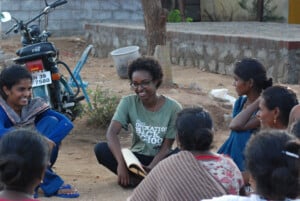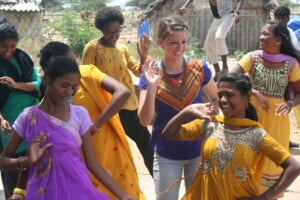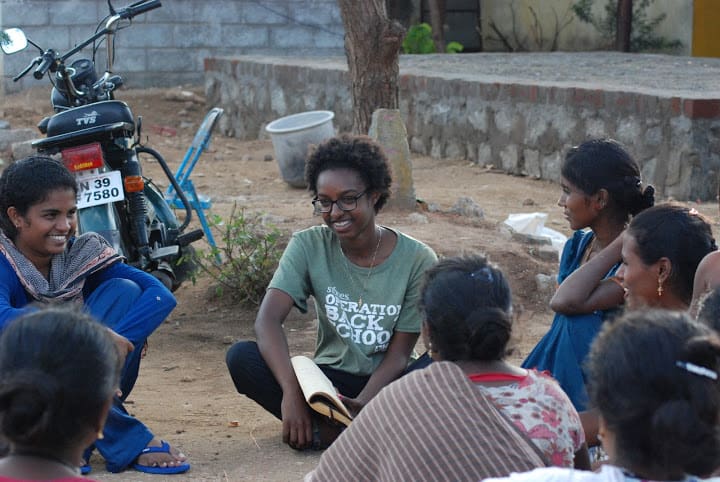What business do students from The University of Texas at Austin School of Social Work have in constructing foundations for houses in India?
Every year, Projects with Underserved Communities sends engineering and social work graduate and undergraduate students abroad to contribute to the underserved communities that receive them, and to gain hands-on experience in their fields of study. Summer 2015 featured projects in India, Tanzania, and Nicaragua and in the past they have taken place in Ghana, Papua New Guinea, and elsewhere .
Headed by associate professor Dorie Gilbert on the School of Social Work’s side, students spend the academic year prior to being in the field developing the needed skills to carry out their role in their chosen projects.
Junior student Addis Gezahegn was part of this summer’s PUC team in Tamil Nadu, India. We talked with her about her experience, and she shared how she discovered the extent to which there is a pivotal role for social workers in many fields that you might not expect.
As a social worker, what was your role on the PUC team?
My role as a social worker in an all-engineering team was to bring a socio-economic perspective, make sure the team was not culturally offensive, and create community involvement. Essentially, I felt I had the best job on the team because it allowed me to learn so much about India’s history, religions and norms. But I also got to address issues specific to our community, like when the team coordinated a street theater performance to motivate students to stay in school, and encourage those who dropped out to enroll in vocational trainings.
What was the most challenging moment of the trip?

One of the biggest challenges the whole team experienced, when in India, was how much everything was subject to change. Regardless of how much we planned and had back-ups for our back-ups, at the beginning of each day, there was no telling how it would go. And so we quickly learned to be okay with things not going our way.
What was most rewarding moment?
Easily one of the most rewarding moments was the last day spent with our community. I had expected to take some pictures and exchange hugs before going back to the U.S. But instead, when stepped out of our car we saw a sign that said “welcome to our family,” were greeted with a ceremonial blessing and gifts, and everyone was dressed up to put on a dance for us. I bawled like a baby because I was overwhelmed with the love that they showed.
Do you have a memory that encapsulates PUC purpose?

Nearing the completion of our housing project, I had the opportunity to hold a focus group with the families who received homes. We talked about their ideas for future projects and how it was working with PUC, but they also expressed their gratitude. They mentioned how without PUC’s help and fundraising, it would have been impossible to build the houses on their own and were grateful because they felt the homes could be used for generations.
What impact has your experience had on your trajectory as a social worker?
Having had this opportunity to go abroad and make a positive impact that was sustainable and culturally sensitive, I can now see myself doing this for the rest of my life. PUC has made me realize that if ten students alone could fundraise, design, and implement a successful project overseas, then there was no telling what I could do in the future to make an even larger global impact. Because of the PUC program, my new professional goal is working for United Nations and other international organizations to ultimately reach all under-served communities.
By Martin do Nascimento. Posted September 8, 2015.


